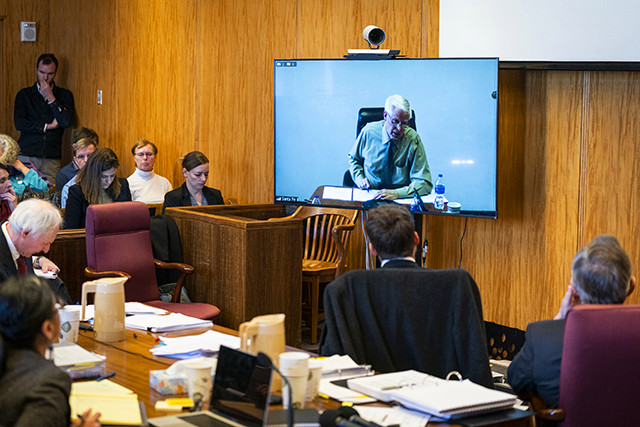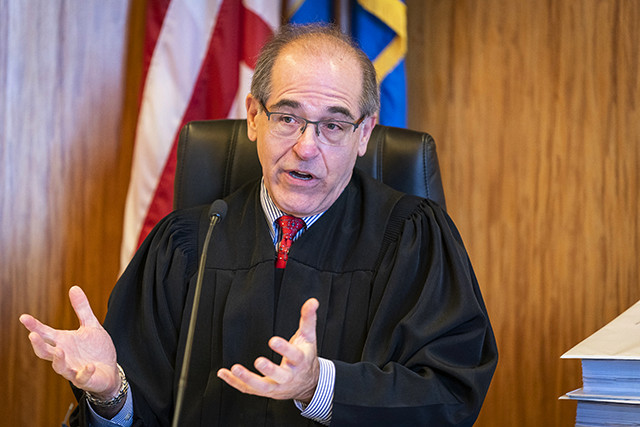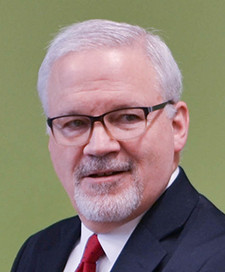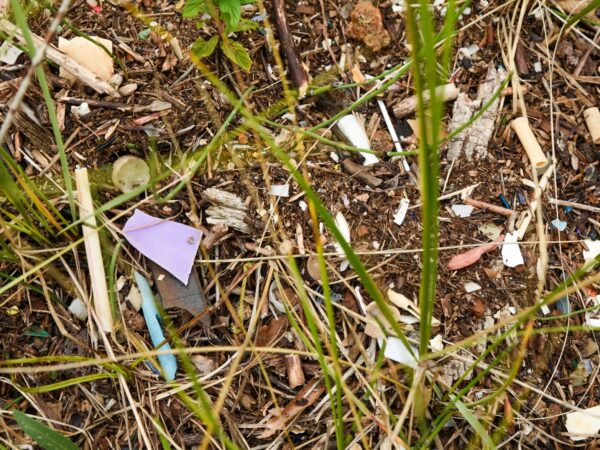
By Walker Orenstein, MinnPost, through the Institute for Nonprofit News network
A former federal official testified in court on Tuesday that state regulators asked his office to shield criticism of a key water permit for the PolyMet copper-nickel mine in part to avoid news coverage.
Kevin Pierard, who oversaw the permit at the U.S. Environmental Protection Agency, said state officials asked him to submit concerns after a public comment period because those critiques would duplicate issues raised by environmental groups — but also because they would “create a good deal of press.”
Pierard was the first witness at a hearing in Ramsey County District Court over whether the Minnesota Pollution Control Agency broke with standard practice to keep EPA criticism on a draft permit governing water pollution out of public record. It’s one of several ongoing legal challenges to PolyMet Mining’s $1 billion project near Hoyt Lakes.
In this case, the MPCA has said it was operating normally when it issued the permit — aimed at preventing or limiting toxic discharge to nearby waters — in December 2018. For months, the agency argued it intended to change its draft permit after the public comments, and preferred the EPA feedback after those alterations. The EPA’s concerns were addressed, according to the MPCA, and the feds did not veto the final product.
But the Minnesota Court of Appeals in June said there was “substantial evidence of procedural irregularities” in how the MPCA handled the case and asked the district court to investigate. Environmental groups and the Fond Du Lac Band of Lake Superior Chippewa are suing the MPCA over the permit, known as a National Pollution Discharge Elimination System Permit (NPDES).
If built, PolyMet would be the first copper-nickel mine in the state, but the project has long been controversial; opponents contend such mining will pollute water with acidic runoff and heavy metals. PolyMet argues it can prevent that damage with new water treatment technology and other protections.
Answering questions from mine opponents under oath Tuesday via a live video from Santa Fe, N.M., Pierard said he disagreed with the MPCA’s request for the EPA to issue criticism after the public comment period. Pierard said it was “standard practice” to provide written comments on draft permits in order to document his agency’s action in an official record. Of the roughly 700 permits he has reviewed, Pierard said the EPA issued written comments on “most” of them.
“The process is what it is,” he said. “We don’t make it up site by site, or where you might get press or you might not. Our process was to provide comments to the state in writing.”

Judge John Guthmann presiding over an evidentiary hearing regarding “procedural irregularities’’ in the PolyMet permit case on Jan. 21, 2020. (Pool photo by Leila Navidi/Star Tribune via MinnPost)
Pierard spent 36 years at the EPA, all in the Chicago-based Region 5 branch. For nine years, he was chief of the NPDES program branch, and oversaw permitting in a cluster of Great Lakes states. He currently works at New Mexico’s Environment Department.
The EPA’s comments were read over the phone to MPCA staff after the public comment period in March of 2018 had ended. But they were not submitted in writing and did not become part of the administrative record that details how an agency issued a permit.
EPA notes of those critiques were eventually publicly released in writing earlier this year after a Freedom of Information Act request by the environmental group WaterLegacy. They outlined concerns the NPDES would violate the Clean Water Act and allow PolyMet to pollute.
Pierard did not say why the EPA agreed not to issue comments in writing on the draft permit. His testimony was set to resume Wednesday. But he said the MPCA preferred verbal communication, and that Minnesota regulators reviewing mining projects had a “hesitancy at the state level to memorialize things in writing.”
Former MPCA commissioner John Linc Stine and former assistant commissioner Shannon Lotthammer are expected to testify later this week. Pierard said Lotthammer had told him their decision was in part motivated by avoiding media coverage.
MPCA spokeswoman Cori Rude-Young did not respond to Pierard’s comments but said the agency would “respond through our cross examination and presentation of evidence” later in the hearings. In earlier court declarations, the MPCA said the EPA comments were one part of a lengthy collaboration between the governments.
The EPA and others had raised identical questions through the permit-development process that were detailed in the administrative record, MPCA attorney Richard Schwartz said in a June statement submitted to the Court of Appeals. Schwartz said the MPCA objected to the timing of EPA comments, not the agency’s ability to make comments. Plus, top officials at the MPCA said many concerns raised by others in the public comment period overlapped with the EPA’s concerns.
“Rather than have EPA send us written comments on the version of the permit that we knew we were going to change, we believed that it would be more efficient — both for us and for EPA — if EPA waited to give us any written comments based on the next draft, in which we had the opportunity to address concerns shared by the public,” Lotthammer said in a June to the Court of Appeals. Lotthammer is now at the Minnesota Department of Natural Resources.
Pierard said that while some criticisms made by environmental groups can be similar to EPA comments, they are not equivalent. “Many times we can speak more authoritatively than most commenters,” he said.
Earlier in Tuesday’s hearing, environmental groups and the Fond du Lac Band accused the MPCA of intentionally deleting records to avoid scrutiny, including wiping Linc Stine’s computer after he left office in 2019. The mine opponents argued the MPCA should be sanctioned and asked Judge John H. Guthmann to presume the agency destroyed information that reflected poorly on it. Lawyers for the MPCA said the agency has kept to reasonable record-keeping practice and adhered to public records laws.
Guthmann said he wouldn’t make a determination until more evidence was presented at the hearings.
This article, first published in MinnPost, is republished here through Great Lakes Now’s membership in the Institute for Nonprofit News, a network of more than 200 nonprofit newsrooms across the U.S., working to strengthen the sources of trusted news for thousands of diverse communities.
MinnPost is a nonprofit, nonpartisan media organization whose mission is to provide high-quality journalism for people who care about Minnesota.
Read some of Great Lakes Now‘s coverage of PolyMet and other mining projects in the region here:
Hearing puts Minnesota agency under scrutiny over PolyMet mine permit
Minnesota court rejects major permits for PolyMet mine
Featured image: Kevin Pierard, who oversaw a key water permit at the U.S. Environmental Protection Agency, is questioned via video. (Pool photo by Leila Navidi/Star Tribune via MinnPost)





